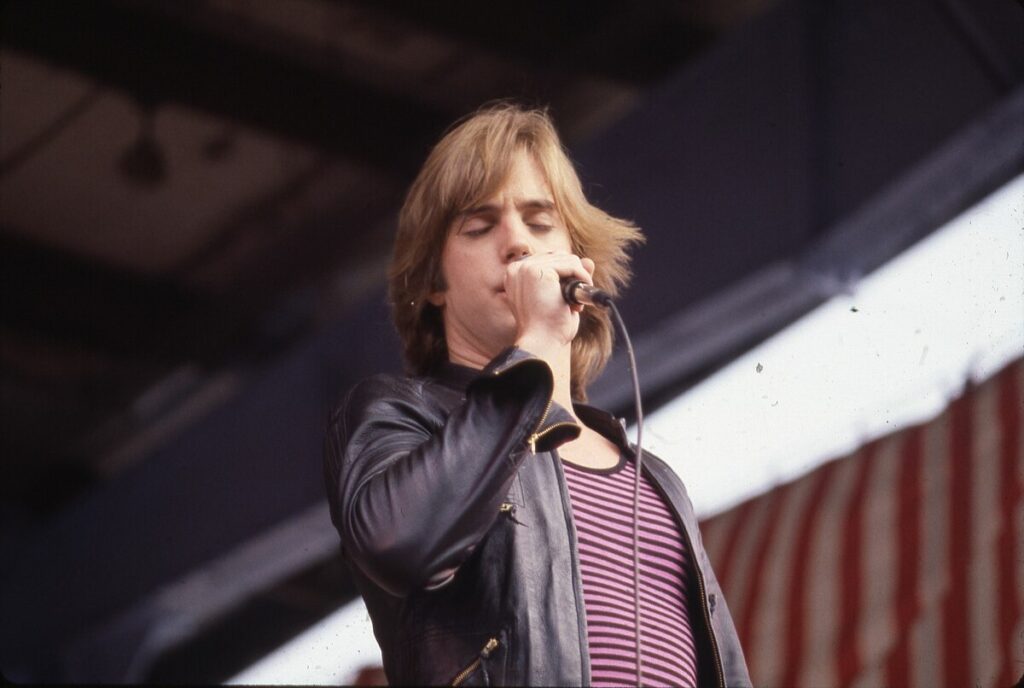
A sunlit Brian Wilson breeze for a fading summer—tender, jangly, and braver than its chart story
Start with the anchors. “It’s Like Heaven” is a mid-album jewel on Shaun Cassidy’s 1978 LP Under Wraps—Side One, track 5—written by Brian Wilson, Diane Rovell, and Rocky (Rushton) Pamplin, and produced by Michael Lloyd. The cut wasn’t released as a single, so there’s no standalone chart position; instead its fate rode with the album, which debuted in the late summer of 1978 and peaked at No. 33 on the Billboard 200 (the set’s only U.S. Hot 100 single was “Our Night,” a modest No. 80). On most pressings the track runs about 3:05, a compact breeze that passes through the room and leaves it a little brighter.
The song’s pedigree is catnip for pop historians. Those writing credits link Cassidy directly to the post-Beach Boys circle around Brian Wilson in the mid-to-late ’70s: Rovell (of the Honeys/American Spring) and Pamplin (Wilson’s sometime caretaker and collaborator) were part of the intimate, messy constellation orbiting Brian’s music and recovery. Hearing Cassidy sing a Wilson-Rovell-Pamplin tune in 1978 is like opening a window between two adjacent pop worlds—the L.A. studio dreamers and the last burst of ’70s teen-idol radio.
What does “It’s Like Heaven” sound like? Imagine a soft-focus Polaroid that still catches the grain of the moment. Lloyd’s production favors chiming guitars, light hand percussion, and layered background voices that nod toward Wilson’s cloud-bank harmonies without imitating them outright. The band is a who’s-who of L.A. pros—players like Jay Graydon, Dee Murray, Carlos Vega, and a small choir of ace session singers—so the groove sits cleanly, unhurried, with Cassidy’s lead vocal framed like a face in afternoon light. He leans into the vowels, keeps the consonants quick, and trusts the melody to carry the emotion; it does.
Placed halfway through Under Wraps, the tune feels like a breathing space—a shimmer between the album’s peppier bookends. And it arrives at a telling career moment. After the jet-fuel of “Da Doo Ron Ron,” “That’s Rock ’n’ Roll,” and “Hey Deanie,” Cassidy’s third studio album marks the first unmistakable easing of the teen-idol surge. The LP did fine but not frenzied business (again, Billboard 200 #33), and radio only grazed it. Yet that leveling-off gave him room to reach for material he genuinely loved. Covering a Brian Wilson co-write in 1978 wasn’t a chart gambit; it was an aesthetic choice—to stand in the slipstream of a songwriter whose sense of harmony and innocence had shaped American pop.
The lyric is a simple vow of devotion—being with you feels like heaven—but simplicity here is a discipline, not a limitation. Wilson’s pop catechism has always been about lifting everyday feeling onto a higher plane by getting the intervals right: bright thirds and sixths, voices that rise together and then sigh apart. Cassidy honors that grammar. He doesn’t over-sing; he floats, as if careful not to smudge a fresh coat of paint. The chorus blooms and recedes with the gentleness of surf, and for a few bars you remember the wide-eyed sincerity that once made AM radio feel like a companion, not a marketplace.
There’s also a small, human story tucked in the credits. Rocky Pamplin—credited on some pressings under his given name “Rushton”—was part of the protective cordon around Wilson during a fragile period. That someone from that circle co-wrote a song that ends up on a Warner Bros. teen idol’s LP says a lot about how songs travel: by friendships, by accidents, by a shared belief that a good melody deserves a home. Diane Rovell, for her part, had sung Wilson’s harmonies since the early ’60s; you can almost hear her sensibility in the way the backing voices cradle Cassidy’s lead.
Chart context, cleanly stated. “It’s Like Heaven” itself logged no U.S. single chart entry. The parent album Under Wraps reached #33 stateside and #68 in Australia; its lone U.S. Hot 100 appearance was “Our Night” at #80. Later, when Curb Records compiled Greatest Hits in 1992, “It’s Like Heaven” made the cut—quiet validation that the song outlived its season even if it never headlined it.
For older listeners—the ones who remember paper sleeves, radio dedications, and summer car rides with the windows down—this track may bring back a specific texture of feeling: hopeful, a little tender around the edges, unafraid to be earnest. That was always Cassidy’s best register when he picked the right material. On “It’s Like Heaven,” you hear a young star briefly stepping out of the pin-up glare to borrow a page from Brian Wilson’s hymnbook: three minutes of grace, sung straight, with just enough California light left in the chords to make you believe him.